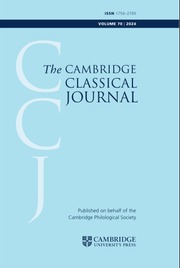Article contents
Athenian bribery reconsidered: some legal aspects*
Published online by Cambridge University Press: 28 February 2013
Extract
In his Panathenaicus, which was issued in 339 BC, Isocrates condemns Athenians for their rampant bribery:
[Formerly] those who had been elected to office were expected to neglect their own property, and also to abstain no less from those perquisites (λημμάτων) which nowadays the officials have become accustomed to gain than from the sacred treasures; who under the current circumstances would have such sense of self-restraint? (Isoc. 12.145)
There are many references suggesting that the Athenians not only deplored but also had strict attitudes towards bribery, which they considered to be a distinct crime. What should not be overlooked, however, is that the Greeks had their traditional values concerning gifts and reciprocity, according to which they were expected to give in return when given something. In so-called Homeric society gift-giving was one of the most fundamental principles of social relationships, as is notably pointed out by M. I. Finley. That the Greek word dôra, which is most commonly used to mean bribery, originally refers to gifts in general epitomises the ambivalence of Greek values concerning bribery.
- Type
- Research Article
- Information
- Copyright
- Copyright © The Author(s). Published online by Cambridge University Press 2006
References
BIBLIOGRAPHY
- 2
- Cited by


